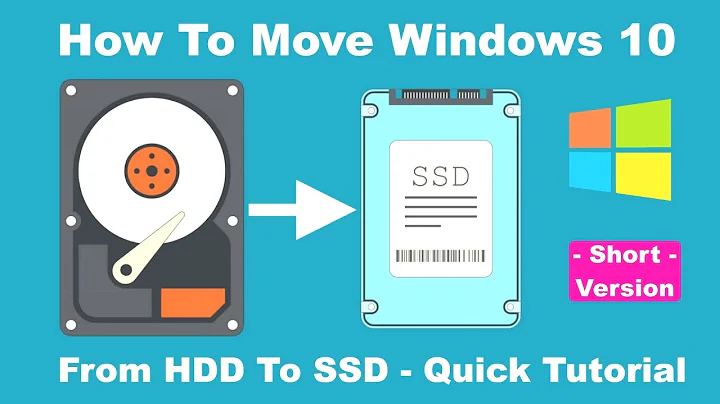Should I install my operating system on my SSD or HDD?
Solution 1
You are correct, your OS will only boot up faster with a solid-state drive. That being said, if you perform any operating system related task that needs to retrieve data from the drive, it will be much faster then if your OS was on the HDD. That being said, if you only care about loading subsequent programs (or logistically prefer keeping your OS separate), you can easily keep the SSD as a secondary drive, only using it for certain programs/tasks.
The whole point of a solid-state drive is to decrease application loading times, and that's it for most users. This is more due to the lower seek time rather then the faster transfer rate, which makes it more like RAM (good sustained and random transfer rates). In fact, some users would be better off getting more RAM then a solid-state drive - but that always depends on your needs as the user.
That being said, the main storage device (SSD or HDD) is always the bottleneck of any computer system. While SSDs help to alleviate this bottleneck, new ones are still only ~1/40th the speed of RAM. For example, some memory bandwidth in newer computers has reached over 20,000 MB/s versus some new SSDs which top out at just over 500 MB/s.
You can also use it for the increased sustained transfer speed, but that only applies if you deal with very large file transfers with, for example, video encoding.
For the fastest experience with your computer, install your OS on the solid-state drive, but do remember to make frequent backups. Yes, it will mostly affect just your load times, but again, that's why you put data on a solid-state drive in the first place. They are not meant for storage of large amounts of data, just your OS/programs/games only.
Finally, since most SSDs have a smaller capacity then hard drives, you may wish to "lighten" your OS install by not installing as many packages (if you use a package-based Linux distro), or using a utility to remove components from the installation media (if you use Windows).
Solution 2
While it's true that an SSD will significantly help boot speeds compared to a HDD, the radically faster random read and write speeds will also make a noticeable improvement to general computer use, such as when loading programs (if they are installed on the SSD), general multitasking, and writing to the page file (if enabled).
As for what programs to install on the SSD or HDD, this is covered by some existing questions:
- SSD/HDD directory assignment under Windows 7
- What directories in a Windows 7 SSD install would you link/junction to an HDD?
- What should I install on each disk? SSD vs HDD
Related videos on Youtube
Tom Squires
Updated on September 18, 2022Comments
-
Tom Squires over 1 year
I'm currently deciding whether to install my Operating System on my SSD (solid state drive) or HDD (hard disk drive). Should I install programs on the HDD and the OS on the SSD or vice versa? Which will have the greatest effect on performance?
My current thinking is that installing the OS on the SSD would only increase load speed but not the running speed since the OS is loaded into memory.
Any thoughts?
-
Tom Squires almost 13 yearsCan you give a few examples of operating system related tasks?
-
Breakthrough almost 13 years@Tom Squires loading any shell/OS utility that isn't immediately cached in memory (e.g. on Windows, loading the device manager, or on Linux, even calling
manwill retrieve that manual page from the HDD). Pretty much anything that isn't stored in RAM needs to be retrieved from storage when you need it. -
Skepi over 3 yearsI totally agree with this. I use a 128GB ssd for os and even though I install nothing on it it is now full and causing me issues when trying to install programs. I assume it uses temp directories on the OS drive by default before installing to other drives




